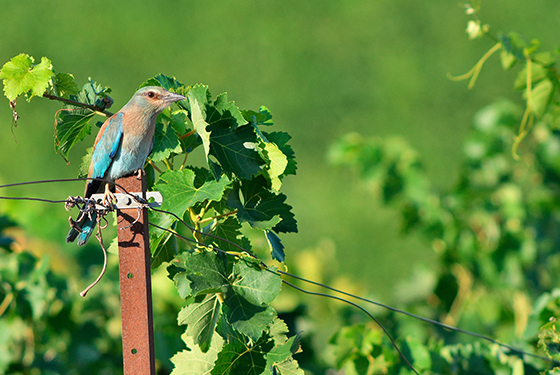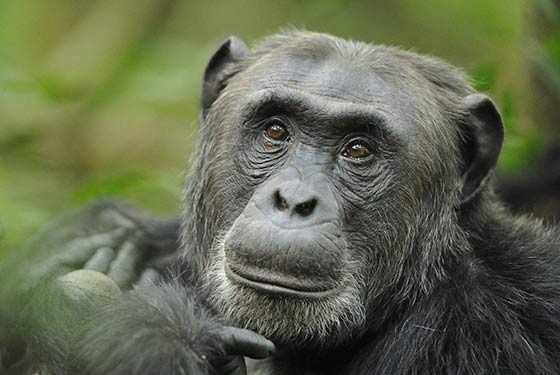In a recent interview with the blog Saïga Voyage Nature, Arnaud Greth, president and founder of Noé said:
And it is this mission of restoring and protecting biodiversity in France and internationally that the Noé association has been pursuing for 20 years with the help of a team of more than 120 employees in nine locations around the world.
2021 marks a special anniversary for the Noé association, which can only rejoice at the dynamism thanks to which its activities have grown and enabled it to act more and better for biodiversity.

"We always talk about saving the planet, but this is just an illusion because the planet does not need to be saved. Humanity, on the other hand, does ! (...) It is absolutely necessary to restore biodiversity (...) and to give nature back the keys and the means to function, which it does very well when we respect it. In my opinion, this is the number one challenge, both in France and internationally".
And it is this mission of restoring and protecting biodiversity in France and internationally that the Noé association has been pursuing for 20 years with the help of a team of more than 120 employees in nine locations around the world.
2021 marks a special anniversary for the Noé association, which can only rejoice at the dynamism thanks to which its activities have grown and enabled it to act more and better for biodiversity.

STRONG NATIONAL ACTIVITIES
The organisation that started out twenty years ago by running a participatory science programme has now greatly expanded its French activities.In France, Noé has been working for a long time on the biodiversity of natural environments and on the conservation of wild pollinating insects, whose populations are in free fall. This is an opportunity to remind ourselves how essential their presence is to our food supply. Our activities in this field are wide-ranging: from maintaining flowering meadows to habitats favourable to so-called ordinary biodiversity, via the development of suitable seed mixtures.
At the national level, Noé also works a lot on agricultural biodiversity issues. Agriculture covers 50% of the French territory and the dominant agro-industrial model threatens biodiversity. We cannot save biodiversity without changing agriculture, and this is the ambition of the Fermes de Noé programme! We are working with many actors to support the transition to agro-ecology and to integrate biodiversity into agricultural practices.

However, in view of the urgency to act for biodiversity, there is still a lot to be done, with the involvement of everyone and at all levels.
We invite you to discover our whole story to extend this reading, or to subscribe to our newsletter to stay connected to biodiversity!
At the national level, Noé also works a lot on agricultural biodiversity issues. Agriculture covers 50% of the French territory and the dominant agro-industrial model threatens biodiversity. We cannot save biodiversity without changing agriculture, and this is the ambition of the Fermes de Noé programme! We are working with many actors to support the transition to agro-ecology and to integrate biodiversity into agricultural practices.
Also, Noé's actions in terms of urban biodiversity are ambitious. For the quality of life and well-being of urban dwellers, it is absolutely necessary to bring nature back into the city. This is the meaning of the Jardins de Noé programme, which celebrated its tenth anniversary in 2020 and whose major ambition is to restore the Green Belt. Our projects in the fight against light pollution are also being developed with the Nuits de Noé programme, which supports public authorities in implementing a Sustainable Lighting Charter.
Finally, it is essential to mention the activities of our citizen biodiversity mission, which includes several participatory science programmes for nature lovers and observers (nearly 12,000 participants to date). Operation Butterfly is proof of the public's interest in nature conservation, which has been present since the beginning of the Noé association.
Finally, it is essential to mention the activities of our citizen biodiversity mission, which includes several participatory science programmes for nature lovers and observers (nearly 12,000 participants to date). Operation Butterfly is proof of the public's interest in nature conservation, which has been present since the beginning of the Noé association.

INCREASINGLY STRONG INTERNATIONAL ACTIVITIES
Since 2013, Noé's activities have become more international. Our missions focus on endangered species and protected areas, in which we carry out conservation actions within biodiversity "hotspots" and which aim to save species (animal or plant) as well as their natural habitats. Thus, Noé is present in New Caledonia to lead conservation and restoration projects for the Caledonian forest and in the Balkans, through actions that target the protection of the Dalmatian pelican.Also at the international level, we have a Natural Products and Green Economy mission which works to develop natural product chains that have a low or positive impact on the environment (honey, cocoa, shea butter) in Central and West Africa in particular, on the outskirts of protected areas and by involving local communities. If we want to contribute to the preservation of nature, we must take into account the needs of local communities, which are often poor, because the preservation of biodiversity cannot be achieved without the support of the populations.
Finally, since 2018, Noé has set up an important new activity for the International Pole through its Noé Parks programme. This is a conservation and sustainable management programme for African protected areas. Noé ensures the long-term management of protected areas (currently in Niger and Chad) within the framework of a management mandate entrusted by the country, and responding to the challenges of safeguarding biodiversity, local development and the security of local populations.
Finally, since 2018, Noé has set up an important new activity for the International Pole through its Noé Parks programme. This is a conservation and sustainable management programme for African protected areas. Noé ensures the long-term management of protected areas (currently in Niger and Chad) within the framework of a management mandate entrusted by the country, and responding to the challenges of safeguarding biodiversity, local development and the security of local populations.
PERSPECTIVES IN THE SERVICE OF BIODIVERSITY
Over the past 20 years, Noé's teams have come a long way and are involved in the association's actions on a daily basis!However, in view of the urgency to act for biodiversity, there is still a lot to be done, with the involvement of everyone and at all levels.
We invite you to discover our whole story to extend this reading, or to subscribe to our newsletter to stay connected to biodiversity!



